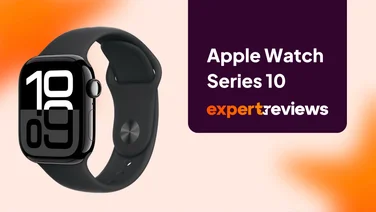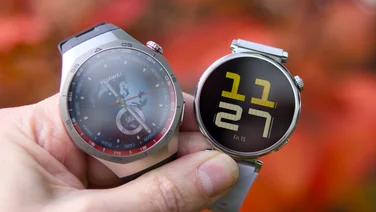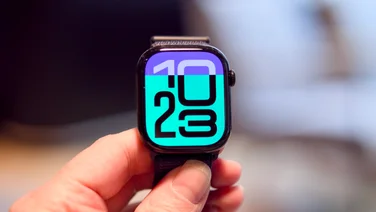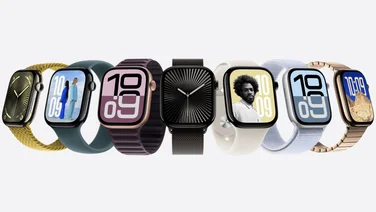To help us provide you with free impartial advice, we may earn a commission if you buy through links on our site. Learn more






- Slim, elegant design
- 24/7 heart rate monitoring
- Impressive battery life
- Pricier than the Charge 2 HR
- Fewer features than the Charge 2 HR
Since its initial launch in 2017, the Alta HR has since been superseded by Fitbit’s Inspire range, which includes the fantastic Inspire HR (which we gave a five-star best buy review) and later the Inspire 2.
The Inspire HR launched at £90, £30 cheaper than the Alta HR, which is a steal when you consider that it does pretty much everything the Alta HR did (plus the addition of features such as swim tracking, multi-sport tracking and a touch-sensitive display)
So, the Fitbit Alta HR has been officially discontinued. However, if you’re determined to get your hands on one, you might still have some luck on Amazon while stocks last. Otherwise, why not check out Fitbit’s Inspire range, as well as our best Fitbit roundup.
Jon’s original review continues below.
If you’re one of those people who think too much choice is a bad thing, then Fitbit owes you an apology. The fitness tracking company has just swelled its range with the addition of a new wearable, the Alta HR. Sitting between the step-tracking Alta and all the all-singing, all-jogging Charge 2, the Alta HR brings heart-rate monitoring to Fitbit’s most compact wearable yet.
Fitbit Alta HR review: What you need to know
If you’re looking for a fitness wearable that packs in heart-rate monitoring without the bulk of more fully-featured devices – such as Fitbit’s own Charge 2, for instance – then the Alta HR could be just the ticket. It’s discreet enough to wear all day, every day, and the slim, bracelet-esque styling is less bulky than more traditional watch-style designs – which means it will be more flattering for daintier wrists. Right now, there’s only one reason to buy something else instead: its price.
READ NEXT: Best fitness trackers of 2018






Fitbit Alta HR review: Price and competition
The Alta HR’s £130 price puts it in an awkward position. Our favourite Fitbit device – and one of our favourite wearables full stop – is the Fitbit Charge 2, and you can now find that online for as little as £120. If you’re prepared to stump up a little more, alternatively, you could buy the Garmin Vivosport (£170), which has a similar slim form factor but also features GPS.
Fitbit Alta HR review: Design
In terms of design, the Fitbit Alta HR looks almost identical to the standard model. There’s the same thin, rectangular monochrome OLED display that lets you cycle between the available stats with a firm tap on the screen, and the rubber strap can be quickly and easily swapped out for a new one. The bad news? Fitbit has created another proprietary charger that isn’t compatible with the standard Alta. And you better not lose it: a replacement costs £17.
The only physical differences to the standard Alta are minimal. It’s grown a tad thicker in order to squeeze in the heart-rate sensor, a change that also makes it a tad less comfy, and the wristband is now a classic buckle-and-tang design, which is more secure on the wrist than the press-stud Alta.






Fitbit Alta HR review: Fitness tracking
Fitbit’s decision to add a heart rate sensor to its entry-level wearable makes a lot of sense, though. Where the standard Alta has to rely purely on how many steps you’ve taken to calculate your calories burned, the Alta HR can also monitor your heart rate to ascertain how hard you’re working. It also allows the Fitbit app to monitor your resting heart rate, which is both a useful indicator of general fitness and whether you’re pushing yourself too hard.
The Alta HR’s sleep-tracking has also improved drastically. In addition to monitoring how long you spend in light, deep and awake states, the app now details how much REM (rapid eye movement) sleep you’re getting and displays the whole lot in a snazzy new graph. If it thinks you’re not getting the best quality of shut-eye, Fitbit’s app even gives you tips on how to improve things.
In fact, the app remains one of the best things about Fitbit’s family of products. The app’s tile-based display is super simple and makes it easy to find the data you want to know about your workouts. The ability to connect with friends adds a welcome bit of competition, and you can also sync your data with MyFitnessPal, Strava, Runkeeper, MapMyRun and Endomondo. Alexa integration is included, as well, and the app is also compatible with more weird and wonderful fitness gadgets, such as the Thermos Hydration app, which makes sure you’re drinking enough water.
Crucially, Fitbit has ensured that the Alta HR tracks pretty much everything the average person could ask for. The heart-rate tracking and improved sleep analysis are a nice bonus, but you still get all the basics such as your total number of steps, distance walked, calories burned and how many minutes you’ve been “active”.






There are a few smartwatch-style features, too, with the screen displaying incoming calls and SMS or WhatsApp messages, in addition to upcoming calendar entries.
The best thing about the Fitbit way of doing things, though, is the automatic activity detection: spend more than ten minutes working out, and the Alta HR records the activity as running, walking or whatever you happen to be doing at any time, without any intervention required by the user.
One other handy feature is that you can set silent, vibrating alarms, perfect for making sure you don’t miss those early wake-up calls, and without incurring the wrath of your sleeping partner. And, just like most fitness trackers, the Alta HR can also prod you with a haptic buzz if you spend too long sitting still.
The only disappointment is that, just like the Flex 2, the Alta HR it isn’t rated to survive lengths at the local pool. Swimmers should look elsewhere.






Fitbit Alta HR review: Battery life and performance
Battery life hits the mark nicely. Impressively, the continuous heart-rate monitoring hasn’t impacted the Alta HR at all. It seems to last as long as the standard Alta. For a device that keeps track of your heart rate 24 hours a day, five to seven days of battery life is right on the money.
The Alta HR’s fitness tracking appears to be pretty accurate, too, even if it doesn’t always autodetect every activity. There are no problems with walking and running, but it completely ignored a week’s skiing, despite several hairy black runs sending the pulse racing. Most annoying of all was the fact that it captured the low-intensity runs, or the walks around the town, but not the lung-bursting downhill runs. The lesson? Skiing is not the Alta HRs forte.
In addition, the lack of integrated GPS means you should treat the distances travelled as more of a guide than gospel. Without GPS data to pinpoint your position, it’s only ever going to be an estimate. Still, if you do crave accurate distance data, then the Fitbit app lets you get the best of both worlds: you can piggyback off your phone’s GPS and combine that with the heart-rate data from the Alta HR.
The Alta HR’s general accuracy in other areas is surprisingly good, though. Comparing the heart rate data to a MyZone MZ-3 chest belt showed the Alta HR’s average heart rate was only 5-6% off.
Fitbit Alta HR review: Verdict
If you’re a fan of the Fitbit way of doing things, the Alta HR won’t disappoint. As an easy, hands-off way to monitor your daily activity and pinpoint how and where you can improve, the combination of the Alta HR and Fitbit app are difficult to beat. Fitness fanatics might benefit from pricier fitness wearables with support for more accurate ANT+ or Bluetooth sensors and those looking to specialise in one sport should pick an activity-specific device, but for most mere mortals the Alta HR is a near-perfect compromise.
The Alta HR’s biggest problem is its own stablemate, the FitBit Charge 2, which at the time of writing is available for around £10 less. The Charge 2’s larger screen and extra features make it just that bit more capable and the barometric altimeter makes it capable of more accurately tracking elevation on runs and rides in addition to estimating how many floors you’ve climbed during a day in the office.
So, why would you choose the Alta HR? Simple. Because you want a slimmer, daintier fitness tracker than the Charge 2, and you don’t mind missing out on a couple of features that may not need, or want. Frankly, whichever you choose, you’re not going to be disappointed.








